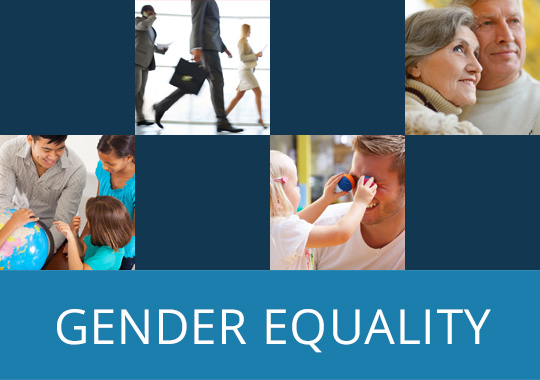Education

In particular, the social roles associated with stereotypical representations of femininity and masculinity are often replicated in the education system. These inequalities impact on women and men’s economic and social situation. Notably, girls’ academic success has not led to the elimination of employment inequalities, the gender pay gap, or inequalities in relation to care work. The educational sector plays a crucial role in shaping gender representations, attitudes and behaviours. Therefore, eradicating formal discrimination in the education system is a first step, as well as the integration of a gender equality perspective into all aspects of education to ensure that the education sector actively promotes gender equality.
Gender mainstreaming and education at the Council of Europe
The Council of Europe Recommendation CM/Rec(2007)13 of the Committee of Ministers to member States on gender mainstreaming in education provides the framework and aims for the activities of the Organisation on this topic. The Recommendation suggests actions in all areas pertaining to the organisation and content of education. Combating gender stereotypes in education is also one of the priorities of the Council of Europe Strategy on Gender Equality 2018-2023 In addition; Member states are introducing measures in order to integrate a gender equality perspective in their educational system. The final objective is to integrate a gender equality perspective in all Council of Europe activities in the field of education: from higher education to teachers’ training, education for democratic citizenship and human rights, history teaching or language policy.
See also sections on youth, children, media, audio-visual policy and cultural and natural heritage.
Council of Europe's activities and tools
- Compilation of good practices from member states to promote an education free from gender stereotypes and Factsheet on the topic, 2015
- Conference on Combating Gender Stereotypes in and through Education (Helsinki), 2014
- First Monitoring report of the Committee of Ministers’ Recommendation on gender mainstreaming in education: Conclusions: “(…) Although the goal of providing equal opportunities for women and men exists almost everywhere, fewer countries have identified explicitly the aim of reaching gender equality in terms of outcomes or have successfully implemented the gender mainstreaming strategy in the field of education.., 2012
- Publication of an expert study on combating gender stereotypes in education: the historical and analytical aspects of gender stereotypes in education, 2011
- Preparation of a report on promoting gender mainstreaming in schools: guidelines for the development of a top-down strategy to promote gender mainstreaming in schools, 2004
Other resources
- She Figures: Publications of the European Commission monitoring new developments related to careers, decision‑making and, most recently, how the gender dimension is considered in research and innovation content in the EU.
- OECD data on gender equality in education
- World Bank indicators on gender equality in education



